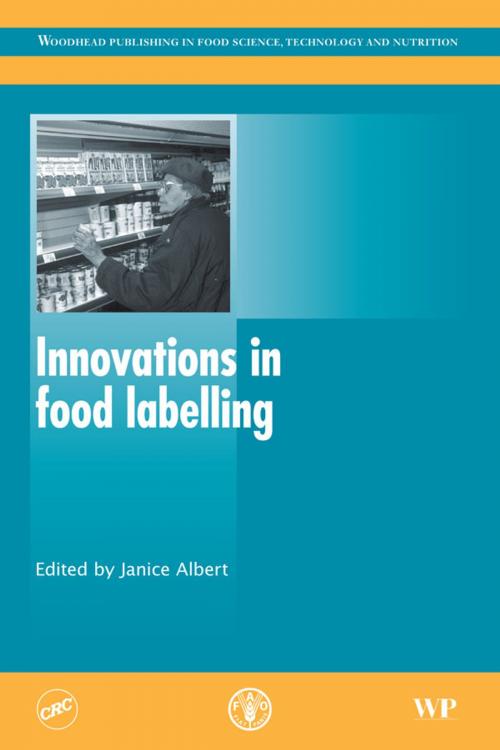| Author: | ISBN: | 9781845697594 | |
| Publisher: | Elsevier Science | Publication: | January 23, 2014 |
| Imprint: | Woodhead Publishing | Language: | English |
| Author: | |
| ISBN: | 9781845697594 |
| Publisher: | Elsevier Science |
| Publication: | January 23, 2014 |
| Imprint: | Woodhead Publishing |
| Language: | English |
Increasingly, consumers desire information about the health, safety, environmental and socioeconomic characteristics of food products. These traits often cannot be detected by sight, smell or taste. Therefore, consumers must use food labels to select products that meet their needs and preferences. The growing consumer and industry interest in food labels presents challenges for governments, which must ensure that the product information is accurate, truthful and not misleading to consumers. Governments must decide whether provision of information should be mandatory or voluntary. With the increase in global trade in food, there is a need to harmonize food labels so that product information is understood and relevant to foreign markets.
Innovations in food labelling provides information about the principles and requirements of food labelling and reviews the latest trends in this important area. Following an introduction on the evolution of food labelling, further chapters cover the Codex Alimentarius and food labelling, international trade agreements, nutrition labelling, allergies and food labels and environmental and social labels, among other topics.
An essential reference for food regulatory agencies, food law experts and professionals in the food industry responsible for labelling as well as consumer and environmental associations with an interest in labelling.
- Provides important information about the principles and requirements of food labelling and reviews the trends in this area
- Documents label evolution and considers standards and legal issues, as well as protection of the environment and sustainable food production
- Features labels for a variety of different markets, including organic foods, and addresses social issues such as association of food quality with location
Increasingly, consumers desire information about the health, safety, environmental and socioeconomic characteristics of food products. These traits often cannot be detected by sight, smell or taste. Therefore, consumers must use food labels to select products that meet their needs and preferences. The growing consumer and industry interest in food labels presents challenges for governments, which must ensure that the product information is accurate, truthful and not misleading to consumers. Governments must decide whether provision of information should be mandatory or voluntary. With the increase in global trade in food, there is a need to harmonize food labels so that product information is understood and relevant to foreign markets.
Innovations in food labelling provides information about the principles and requirements of food labelling and reviews the latest trends in this important area. Following an introduction on the evolution of food labelling, further chapters cover the Codex Alimentarius and food labelling, international trade agreements, nutrition labelling, allergies and food labels and environmental and social labels, among other topics.
An essential reference for food regulatory agencies, food law experts and professionals in the food industry responsible for labelling as well as consumer and environmental associations with an interest in labelling.
- Provides important information about the principles and requirements of food labelling and reviews the trends in this area
- Documents label evolution and considers standards and legal issues, as well as protection of the environment and sustainable food production
- Features labels for a variety of different markets, including organic foods, and addresses social issues such as association of food quality with location















